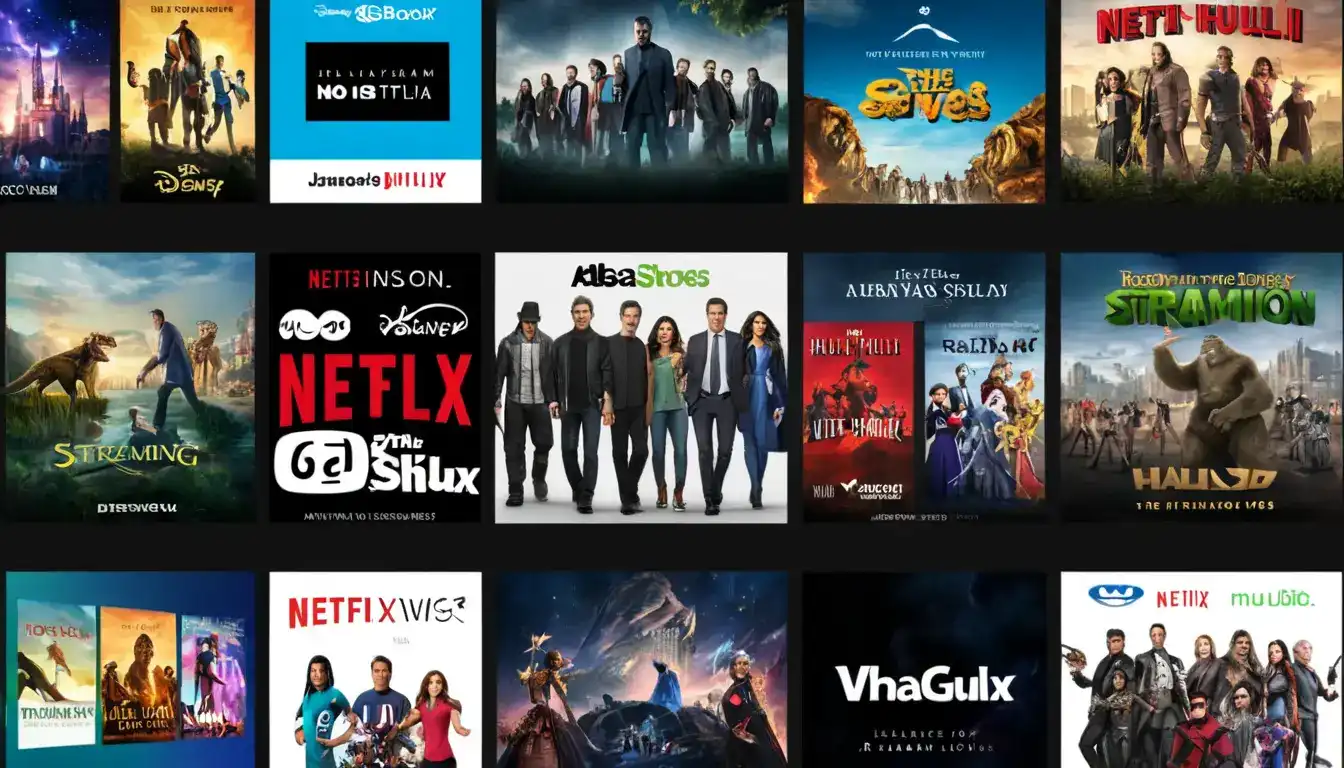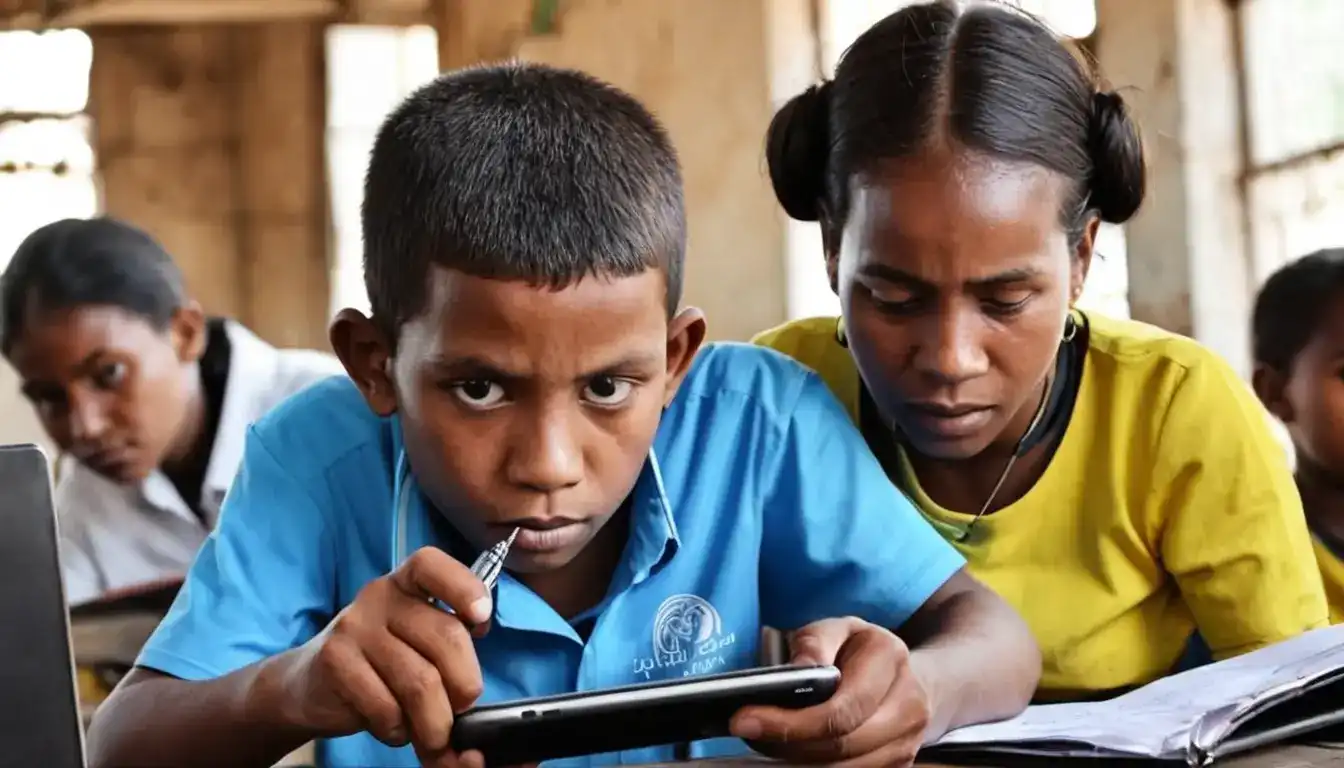Causes and How to Deal with Dyslexia in Children
Emily Willis

Photo: Causes and How to Deal with Dyslexia in Children
Learning to read is a magical journey for most children. Letters transform into words, stories come alive, and knowledge expands. But for some children, this journey can be filled with hurdles. Dyslexia, a specific learning disability, can make reading and writing a challenging experience. However, with proper understanding and support, children with dyslexia can overcome these obstacles and thrive.
What is Dyslexia?
Dyslexia isn't a sign of a lack of intelligence. It's a neurological difference that affects how the brain processes language. Children with dyslexia may have difficulty with:
- Phonemic Awareness: This is the ability to identify and manipulate the individual sounds (phonemes) that make up words.
- Phonics: This involves understanding the relationship between letters and the sounds they represent. For example, recognizing that the letter "b" makes the sound "buh."
- Fluency: This refers to the ability to read smoothly and accurately.
- Decoding: This is the process of sounding out unfamiliar words by breaking them down into individual sounds.
- Comprehension: While they may struggle with decoding, children with dyslexia can still understand the meaning of a story if it's read to them.
Signs and Symptoms of Dyslexia in Children:
The signs of dyslexia can vary depending on the child's age and the severity of the condition. Here are some common indicators:
Preschool:
- Difficulty rhyming words
- Trouble learning letter names and sounds
- Delayed speech development
Early Elementary School:
- Difficulty learning to read
- Confusing letters or sounds (e.g., "b" and "d")
- Slow and labored reading
- Difficulty with spelling and writing
- Avoiding activities that involve reading
Later Elementary School and Beyond:
- Persistent difficulty with reading fluency and accuracy
- Poor spelling and grammar
- Difficulty with written expression
- Low self-esteem due to academic challenges
It's important to note that these are just general signs, and not all children with dyslexia will experience all of them. If you suspect your child might have dyslexia, it's crucial to seek a professional evaluation from a qualified specialist, such as a psychologist or educational diagnostician.
Helping Your Child with Dyslexia:
Early intervention is key for children with dyslexia. Here are some ways to support your child:
- Seek Professional Help: A qualified professional can conduct a thorough evaluation to diagnose dyslexia and recommend appropriate interventions.
- Work with a Tutor: Specialized tutoring can help your child develop stronger reading and writing skills through targeted strategies and activities.
- Embrace Technology: Assistive technologies like audiobooks or text-to-speech software can make learning more accessible and engaging for your child.
- Focus on Strengths: Dyslexia is just one part of your child. Help them develop their natural talents and interests to boost their confidence.
- Create a Supportive Environment: Show patience, understanding, and celebrate your child's efforts. Create a safe space where they feel comfortable taking risks and asking for help.
- Advocate for Your Child: Work with your child's teachers to ensure they understand their needs and provide appropriate accommodations in the classroom.
Strategies for Teachers:
Educators play a vital role in supporting students with dyslexia:
- Differentiated Instruction: Adapt your teaching methods and materials to cater to different learning styles. Use multisensory approaches that incorporate visual, auditory, and kinesthetic elements.
- Explicit Phonics Instruction: Provide structured and systematic phonics instruction to help students understand the relationships between letters and sounds.
- Use of Graphic Organizers and Mind Maps: Visual aids can help students organize their thoughts, improve comprehension, and facilitate note-taking.
- Tech Integration: Utilize technology to support your students. Text-to-speech software can help with reading fluency, while dictation tools can assist with writing.
- Positive Reinforcement: Celebrate your students' efforts and focus on progress. Positive reinforcement builds confidence and encourages them to persevere.
- Collaboration with Parents: Maintain open communication with parents and collaborate to create a consistent approach that supports the child's learning journey both at home and at school.
Living with Dyslexia: Success Stories
Dyslexia may present challenges, but it doesn't define a child's potential. Many successful individuals have dyslexia, including actors, entrepreneurs, scientists, and artists. They've learned to utilize their strengths, leverage technology, and find creative solutions to overcome their reading difficulties.
These success stories serve as a source of inspiration and hope for children with dyslexia and their families:
- Steven Spielberg: The renowned filmmaker struggled with reading and writing as a child. Despite these challenges, he went on to create some of the most iconic movies of all time.
- Walt Disney: The creator of Mickey Mouse had difficulty with reading and spelling. He found success in animation and storytelling, proving that dyslexia doesn't restrict creativity.
- Whoopi Goldberg: The actress and comedian struggled with reading and writing throughout her childhood. She discovered her passion for performance and found ways to overcome her dyslexia.
- Jamie Oliver: The celebrity chef faced challenges with reading and writing as a child. He found his niche in cooking and has become a household name.
- Henry Winkler: The actor known for his role as Fonzie in "Happy Days" struggled with reading and writing in school. He persevered and became a successful actor and producer.
Conclusion: Embracing Diversity in Learning
Dyslexia is a unique learning difference, not a disability. With the right support and understanding, children with dyslexia can thrive academically, develop strong self-esteem, and achieve their full potential. As educators, parents, and communities, we must embrace diversity in learning and create inclusive environments that empower every child to succeed. By celebrating their strengths and providing the necessary support, we can help children with dyslexia unlock their unique talents and make their mark on the world.
Latest ✨
View AllDiscover the essential qualities required to become a successful leader, from integrity and empathy to communication and adaptability. Learn how to develop these traits to inspire and motivate your team
Emily Willis
top digital marketing trends for 2024, including the rise of AI, the importance of user experience, video marketing dominance, influencer marketing, privacy and data security, sustainability and ethical marketing, and emerging trends like AR/VR, metaverse marketing, blockchain, and NFTs. Specific strategies are provided for leveraging AI for personalized customer experiences, enhancing user experience for mobile users, creating engaging video content, building authentic influencer partnerships, prioritizing data privacy and security, integrating sustainability and ethical practices.
Emily Willis
Europe is full of rich culture, with ten cities offering enriching cultural experiences. From the romance of Paris to the splendor of Rome and the artistic flair of Barcelona, each city has its own unique charm and heritage.
Emily Willis
Proper nutrition is essential for optimal brain function during exams. Foods rich in complex carbohydrates, lean protein, healthy fats, and hydration can help maintain energy levels and focus. Smart snack options during exams include fresh fruits, vegetables with hummus, trail mix, yogurt with granola, and dark chocolate.
Emily Willis
Business
View All
August 4, 2024
Building a Consistent and Inspiring Personal Brand Through Online PlatformsIn today's digital age, it is important to establish a strong personal brand in order to stand out in a competitive landscape. This can be done by following practical steps such as defining your brand identity, identifying your target audience, creating a compelling online presence, crafting quality content, engaging with your audience, leveraging social media effectively, networking and collaborating, monitoring and adapting, showcasing your authenticity, and seeking professional guidance if needed. Building a personal brand requires dedication, authenticity, and strategic planning, but it can lead to a memorable and influential brand that resonates with others in the digital world.
Emily Willis

August 4, 2024
Strategies for Effective Business Growth in a Competitive Marketimportance of strategic planning, innovation, and understanding market dynamics for businesses to achieve sustainable growth in a competitive market. It covers strategies such as customer focus, innovation, marketing, partnerships, financial management, technology, employee engagement, and sustainability.
Emily Willis

August 5, 2024
Tips for Choosing the Right Investment Product for Your Needsprovides guidance on investing money, starting with understanding financial goals and risk tolerance. It explains different investment options such as stocks, bonds, mutual funds, ETFs, real estate, and retirement accounts, and emphasizes the importance of diversification.
Emily Willis
Economy
View Allimpact of inflation on households and businesses, outlining the causes and consequences of rising prices. It provides strategies for both households and businesses to cope with inflation, such as budgeting, seeking deals, and negotiating with suppliers. The importance of collaboration and communication between governments, businesses, and consumers is emphasized, along with the need for long-term investments in infrastructure, skills development, and sustainable practices.
Read MoreGlobalization has a profound impact on the economies of developing countries, offering both opportunities and challenges. By increasing access to markets, facilitating technology transfer, creating jobs, and promoting cultural exchange, globalization can drive economic growth and development. However, addressing the challenges of economic inequality, loss of domestic industries, environmental impact, and cultural homogenization is essential to ensure sustainable and inclusive growth. By adopting strategic measures and fostering international cooperation, developing countries can maximize the benefits of globalization and build a brighter future
Read MoreThe digital economy has the potential to bring economic growth and innovation to developing countries, but there are several challenges that need to be addressed. These challenges include inadequate digital infrastructure, a digital divide that exacerbates inequalities, complex and outdated regulatory frameworks, cybersecurity risks, and limited access to financial services. However, there are opportunities for enhancing financial inclusion and economic growth. These opportunities include mobile and digital payments, implementing digital identification systems, e-commerce and market access, digital skills development, and public-private partnerships. By addressing these challenges and embracing the digital revolution, developing countries can unlock new opportunities for economic empowerment and inclusive growth.
Read MoreEntertainment
View All
August 5, 2024
Entertainment in Society: Social Impact, Cultural Influence, Economic ContributionsEntertainment is more than just a way to pass the time it has a significant impact on society, culture, and the economy. It promotes empathy, sparks conversations, and drives social change. It reflects and shapes cultural trends, while also preserving traditions. The entertainment industry generates jobs, contributes to economic growth, and drives technological innovation.
Emily Willis

August 4, 2024
Virtual Music Concerts: The Future of Live Performance?The music industry has seen significant changes in recent years, with virtual music concerts becoming a popular trend, especially due to the impact of the COVID-19 pandemic. Technological advancements have made virtual concerts more accessible and cost-effective, while also reducing the environmental impact of live events. However, challenges such as technical issues and the lack of physical presence remain. The future of virtual concerts may involve hybrid models that combine virtual and physical experiences, as well as continued technological innovation to enhance the quality of virtual performances. Building a sense of community and engagement will also be crucial for the success of virtual concerts moving forward.
Emily Willis

August 4, 2024
The Evolution of Streaming Services Such as Netflix, Disney+, Hulu, and the Implications for the Traditional Entertainment IndustryThe rise of streaming services has revolutionized the entertainment industry, offering on-demand access to a vast library of content through internet-connected devices. Platforms like Netflix, Disney+, and Hulu have diversified their content libraries, reshaped consumer behavior, and challenged traditional distribution models. Technological advancements have enhanced streaming experiences, while economic and cultural implications have led to global market expansion and increased investment in original content production. The future of the streaming industry will be shaped by competition, convergence of media and technology, and the need for adaptation to changing consumer preferences. Embracing digital transformation and strategic partnerships will be crucial for stakeholders in navigating the evolving landscape of modern entertainment.
Emily Willis
Health
View Allmaintaining good health and well-being through nutritional choices. A balanced diet, incorporating whole foods, staying hydrated, consuming nutrient-dense foods, managing portion sizes, practicing mindful eating, eating regular meals and snacks, considering supplements, and adopting sustainable eating practices are all highlighted as effective strategies for enhancing overall.
Emily Willis
Preventive healthcare focuses on strategies to prevent disease and maintain well-being, rather than just treating illnesses after they arise. It helps identify risk factors early on, allowing for interventions that can prevent or delay the onset of chronic diseases.
Emily Willis
significance of mental health awareness in today's fast-paced world. It discusses the importance of understanding mental health, breaking down stigma, and promoting positive mental health practices.
Emily Willis
Trending 🔥
View All
1
2
3
4
5
6
7
8
10
Lifestyle


Sports
View AllAugust 5, 2024
Sports for Social Good: Promoting Diversity, Inclusion, and Community Engagement
Read MoreTechnology
View All
August 5, 2024
Top Unity Software Development Trends to Watch in 2024
Explore the top Unity software development trends that will shape the gaming industry in 2024. From AI integration to VR/AR immersion, cross-platform reach, cloud collaboration, and mobile gaming, Unity is revolutionizing gaming experiences. Stay ahead in the dynamic world of game development with these insights.

August 4, 2024
Amidst Economic Uncertainty, Businesses Adapt and Innovate for Survival
The business world can be unpredictable, but companies can thrive by embracing adaptation and innovation. Understanding market trends, economic indicators, and global factors is crucial for charting a successful course.

August 5, 2024
The Future of Blockchain and Its Impact on Society
Blockchain technology, originally developed for cryptocurrencies like Bitcoin, has evolved into a versatile tool with the potential to revolutionize various industries beyond finance. Its decentralized and transparent nature offers solutions to challenges faced by societies worldwide. Blockchain's impact on society is poised to be transformative across multiple domains, including enhanced security, data integrity, decentralization, supply chain transparency, digital identity, and financial inclusion.

August 5, 2024
Oculus Quest 2 vs HTC Vive Pro – Which Should You Choose?
Oculus Quest 2 vs HTC Vive Pro – which VR headset reigns supreme? Dive into this ultimate showdown to discover the strengths and weaknesses of each, and decide which one is worth your investment. From specs and comfort to content and price, we'll help you make an informed choice.



















